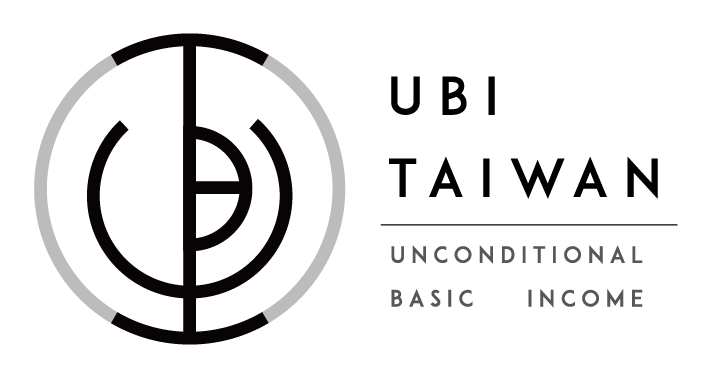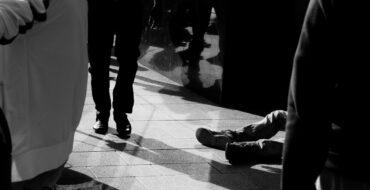
Basic income: What about the irresponsible?
I recently asked American Enterprise Institute President Arthur Brooks about his thoughts on the Basic Income Guarantee (BIG). He told me that he was against the idea because there are some people in society that cannot be trusted to spend the money wisely.
This is notable since Brooks is one of the leading conservative voices advocating for a social safety net. And the simplicity of the BIG is what typically attracts many conservatives and libertarians to the idea, including Brooks’ colleague Charles Murray.
As many Americans would find objection to the universality of the BIG, it is important to address this issue head-on and either defend universality or at least offer some proposals to mediate this issue.
One of the most common objections to a BIG is that there are some people that will take the income and drop out of the workforce altogether.
Economist Ed Dolan states the evidence is actually to the contrary. He gives the example of Bruce, who lives on a boat and does odd jobs throughout the year. When given a BIG, Bruce may choose to work less so that he can play guitar and watch birds.
Although people like Bruce certainly exist, Dolan provides persuasive research to show that they are outliers; most individuals would respond to a universal BIG by working more, not less. This is because if a BIG replaced the current entitlement system, there would be greater incentive to work more, since most entitlements quickly drop off as one earns more income.
However, Bruce is not necessarily the most difficult example. There are certain individuals that have lived in poverty for so long they do not necessarily know how to sustainably manage their finances and may spend BIG funds on destructive habits. Some may have severe drug or alcohol addiction. Others may have mental disorders that could impede their ability to make positive choices.
“Irresponsible usage” of the BIG may pose a challenge to the idea of universal income, both politically and pragmatically.
On the political side, there is a paternalistic streak, for good or ill, that runs through much of the American electorate. This is why welfare reform with work requirements was passed in the 1990s. This is also why food stamps restrict the purchase of alcohol.
Thus, the main feature of the BIG – its simplicity – may also be its political downfall.
On the other hand, there is a legitimate concern about how to assist individuals that engage in what society deems “irresponsible behavior.”
A University of Pennsylvania study showed that 85 percent of homeless individuals that were placed in a home still had a home two years later and were unlikely to fall back into homelessness. In fact, the study suggested that this sort of assistance was cheaper than all of the other funds that are used to manage the homeless, such as emergency room visits and jail.
This is not perfectly parallel because it is a specific assistance–housing, in this case. However, it does illustrate that even the most vulnerable in society, the homeless, will not squander their assistance and end up back on the street.
The 100,000 Housing Campaign targets homeless people that that are most likely to die if they remain on the street. The campaign has been able to keep the vast majority of those served out of homelessness. One lesson from this campaign, though, is that they use regular checkups by social workers to ensure that these individuals are still on track.
This is one possible area where a BIG could be improved. Since most administrative costs of entitlements would be saved under a BIG, a small portion of the program could entail social work to provide free checkups and assistance to vulnerable populations that receive the BIG. The social workers could help individuals set up bank accounts, find jobs, and receive healthcare.
The form that would be used when verifying eligibility for the BIG could include questions that would be used to determine who receives automatic regular checkups by social workers.
In extreme cases where a social worker or a police officer finds individuals using their BIG to pay for debilitating alcohol or drug addictions, the BIG could be contingent on whether the individual undergoes treatment. This does not mean that the BIG recipients should undergo random drug tests, which is a failed policy. Rather, this proposes that it may be prudent in limited instances to use the BIG as an incentive to help bring people that have clearly destructive addictions to get treatment.
In instances where an individual may have extreme mental illness or some other issue that prevents them from using their BIG to acquire basic necessities, such as housing and food, then social workers should help this individual find a caretaker of some sort and request that the BIG be administered by the caretaker on their behalf. This type of scheme should be closely monitored to ensure that most of the money is used to assist these individuals and could mandate a low ceiling for compensation of the caretaker.
Nonetheless, individuals that would completely squander the opportunity that a BIG would provide are likely to be rare. Even absent further tinkering of the BIG to prevent “irresponsible behavior,” it is still preferable to the status quo. No government system meant to alleviate poverty will be perfect. However, a BIG is probably the closest we can get.





